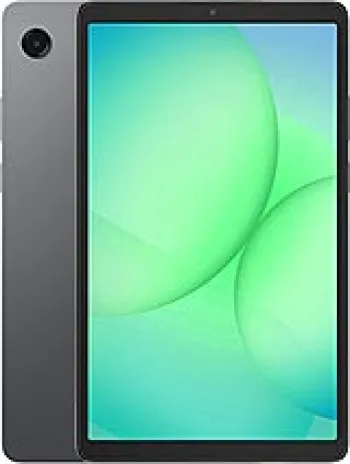
Introduction to Samsung A727
The Samsung A727, announced in June 2007, represents an era of feature phones that blended basic phone functionality with a slight touch of multimedia and internet capabilities. Released during a period where smartphones were just beginning to gain popularity, the A727 catered to users who needed a reliable, compact device with essential communication tools.
Network Capabilities
The Samsung A727 supported both GSM and HSPA networks. This allowed it to operate on a variety of frequencies including GSM 850, 900, 1800, and 1900, as well as HSDPA 850 and 1900 for 3G connectivity. These capabilities facilitated international roaming and provided users with mobile internet access up to speeds of 1.8 Mbps on 3G networks.
Design and Build
One of the A727's most notable features was its sleek and slim design. Measuring 114 x 50 x 9 mm and weighing just 80 grams, it was easy to carry around. The device featured a classic candybar design with a black-colored body. The use of a Mini-SIM meant it adhered to the standard size for SIM cards used at the time.
Display Features
The phone sported a 2.0-inch TFT screen capable of displaying 65K colors. The screen's resolution of 220 x 176 pixels offered a pixel density of approximately 141 ppi, providing clear images and text for its time. While the screen-to-body ratio was approximately 22.1%, it sufficed for viewing basic content and navigating through the phone's menu.
Memory and Storage
Internally, the Samsung A727 had 30MB of storage. While modest by modern standards, it was adequate for storing contacts (up to 1000 entries) and messages. The phone included a microSD card slot, which allowed users to expand storage, making the device flexible for saving additional media and documents.
Camera Capabilities
The device was equipped with a single 1.3MP camera. Although it was not intended for high-resolution photography, it allowed users to capture quick snaps. The camera also supported video recording, adding a multimedia aspect to the phone's functionality.
Audio and Sound
The A727 featured vibration alerts, downloadable polyphonic ringtones, and support for MP3 ringtones. However, it lacked a loudspeaker and a 3.5mm audio jack, which were common drawbacks for phones of its class at the time. These limitations meant that users had to rely on Bluetooth for audio connectivity.
Connectivity Options
While WLAN and radio were absent, the Samsung A727 compensated with Bluetooth version 2.0 with A2DP support, enabling wireless audio streaming to compatible devices. USB connectivity was not supported, restricting data transfer to wireless methods or memory card exchanges.
Software and Features
The phone ran on a feature phone OS which facilitated basic functions such as SMS, EMS, MMS, and email. It also featured a WAP 2.0/xHTML browser for limited internet browsing. Java support (MIDP 2.0) enabled users to download and play simple games. Built-in games provided additional entertainment options.
Battery Performance
A removable Li-Ion 1000 mAh battery powered the device. This was sufficient to provide up to 250 hours of standby time and up to 4 hours of talk time, ensuring it lasted a typical day's use with moderate activity without frequent charging.
Miscellaneous Features
The Samsung A727 was primarily available in black, maintaining a professional look. The SAR value for the device was 1.46 W/kg (head) and 0.64 W/kg (body), indicating its radiation emissions were within acceptable limits. Upon release, the phone was priced around 60 EUR, making it an affordable choice for budget-conscious consumers.
Conclusion
The Samsung A727 was a feature phone that combined essential mobile communication features with a hint of modern technology at the time. Its compact design, basic multimedia capabilities, and sufficient connectivity options made it a reliable choice for everyday users who valued simplicity and efficiency. Despite its discontinuation, it remains a modest representation of the transition era from feature phones to smartphones.
Key Features of Samsung A727
- Ultra-slim design with a thickness of only 9 mm
- Lightweight at just 80 g (2.82 oz)
- Support for GSM / HSPA networks
- Expandable storage via microSD card slot
- 1.3 MP main camera with video capability
- Bluetooth 2.0 with A2DP support for wireless audio
- Comprehensive messaging options: SMS, EMS, MMS, Email
- Java support for downloadable games and applications
- Reasonable battery life with up to 250 hours standby time
- Affordable price, approximately 60 EUR
Drawbacks of Samsung A727
- No loudspeaker available.
- Lack of 3.5mm headphone jack.
- No WLAN (Wi-Fi) capability.
- No GPS positioning.
- No built-in radio functionality.
- No USB connectivity.
- Limited internal storage of 30MB.
- Small 2.0 inches display with low screen-to-body ratio.
- Basic camera features with only a 1.3 MP main camera and no selfie camera.
- Discontinued model with outdated technology.

View Also
More Phones
All Rights Reserved +14266 Phones © Mobilawy 2025

























